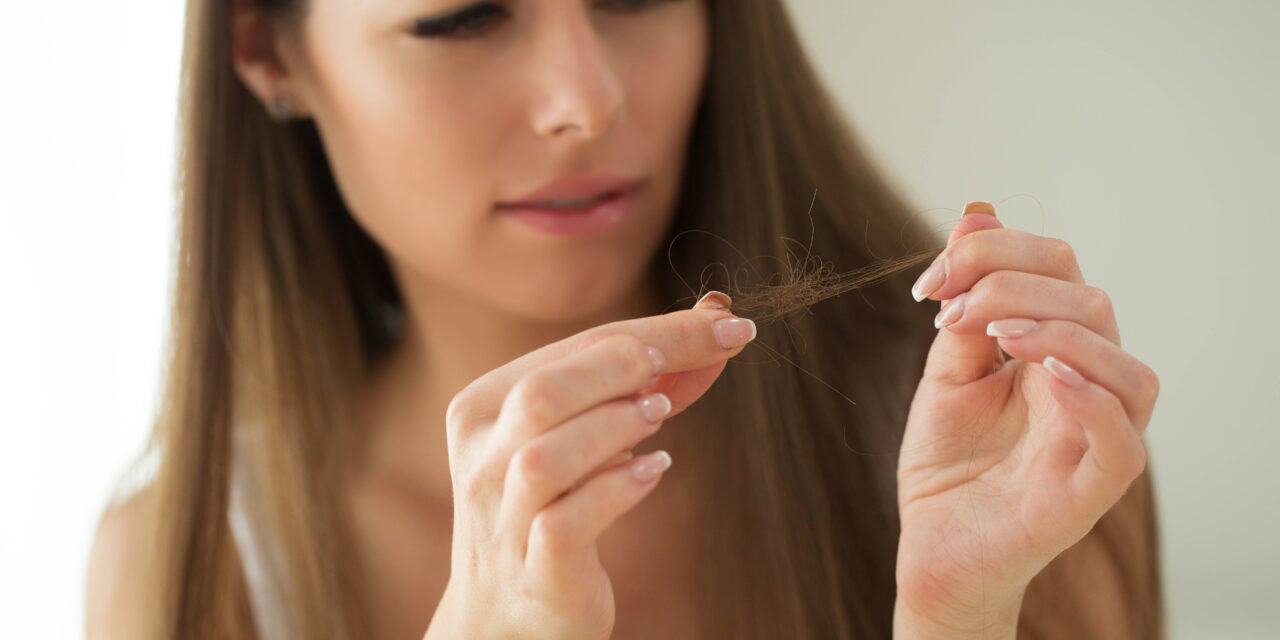Why on earth is my hair falling out?
It’s pretty common – you spend months with glowing skin and hair during your pregnancy and right afterwards, only for those beautiful locks to start shedding. Postpartum hair loss is a common condition that results from hormonal changes in your body after pregnancy. After giving birth, your hormone levels will drop quickly, including estrogen and progesterone which may result in excessive shedding that could be shocking at first.
Fear not, mama. Hair loss after pregnancy is perfectly normal.
Pregnant women experience less hair loss due to the high levels of estrogen in their bodies. When those hormones drop back to normal, you are going to lose the amount of hair that you should have lost while you were still pregnant. It only appears to be serious because your hair is falling out in clumps.
Postpartum hair loss is part of your body’s recovery process and is expected to start within two to four months after childbirth. You will then experience peak hair loss at around four to five months postpartum. The good news is that normal hair growth will return about six months postpartum or, at the latest, before the baby turns one.
What can you do about postpartum hair loss?
While it is impossible to avoid postpartum hair loss, there are some things you can do to minimize its effects. These include taking nutritional supplements, using natural oils, reducing stress, and modifying your diet.
Take the right nutritional supplements.
Getting the right nutrients is important to minimize the effects of postpartum hair loss. By taking all the necessary vitamins and nutritional supplements, you can reduce hair loss and improve hair growth. This can also improve your overall health, which is more important now if you are breastfeeding.
Start by regularly taking your prenatal vitamins, which are still necessary postpartum. You can also get supplements that are high in Vitamin B complex and/or biotin (B7), Vitamin C, Vitamin E, Iron, and Zinc. To get the vitamins and supplements that are right for you, consult a doctor first.
We recommend: Pink Stork Total Post Natal + DHA
Use natural oil treatments.
It is important to go easy on your hair to prevent excessive postpartum hair loss. Be extra careful when you are washing, brushing, and styling it. You can also try using volumizing shampoos and lightweight conditioners that can add body to your hair.
More importantly, look for natural oils that can reduce or stop hair loss. Two of the best natural oils that are said to improve hair growth are almond oil and castor oil, which you can use to massage your scalp to stimulate hair growth. You can also consume flaxseed oil, which is rich in vitamins that help treat hair loss.
Other natural oils to try are lavender oil, peppermint oil, rosemary oil, cedarwood oil, and tea tree oil.
We recommend: Kate Blanc Cosmetics Certified Organic Castor Oil
Find ways to reduce stress, including exercise.
Regulate hormone imbalances by reducing your stress. It is an effective solution to significantly minimize the effects of postpartum hair loss. One way to do this is by regularly doing moderate-intensity aerobic activities. This will not just relieve stress, but it also promotes better sleep and lessens the effects of postpartum depression.
Whatever exercises you do the most important thing is to include it in your daily routine to reduce your stress and improve hair growth.
Make some adjustments to your diet.
Aside from taking vitamins and nutritional supplements, you should also maintain a healthy diet to stop hair loss. Include fruits, vegetables, and healthy proteins in your diet. Doing this will also improve your overall health and help you with your postpartum recovery.
To stop postpartum hair loss from getting worse, include food that provides nutrients necessary to improving hair growth. These include berries like strawberry, raspberry, and bilberry as they are rich in Vitamin C, which aids factors that promote hair growth such as collagen production and iron absorption.
Other food items you should include in your diet to reduce postpartum hair loss are eggs, sweet potatoes, avocados, nuts, and beans.
When should you consult a doctor?
After nine months of pregnancy and successfully delivering a baby, you might think that the surprises are over. Unfortunately, your body will still undergo certain hormonal and physical changes, which may include postpartum hair loss. Don’t panic. This is totally normal and only temporary. It’s simply part of your recovery from childbirth.
However, if you’re still losing hair after a year, consult your doctor. There may be other factors contributing to your hair loss beyond postpartum recovery. Your doctor can give you an accurate diagnosis necessary to identify which treatment would work best for your condition.
















